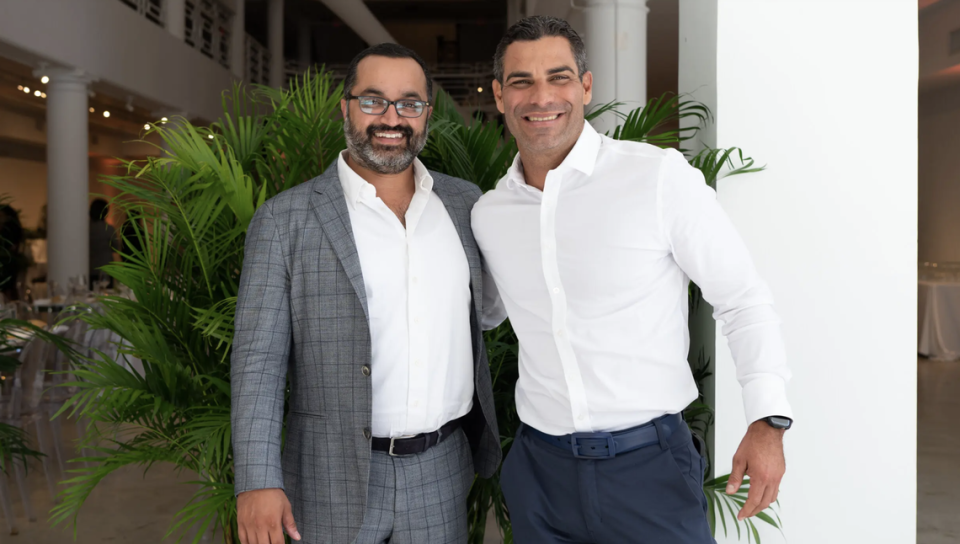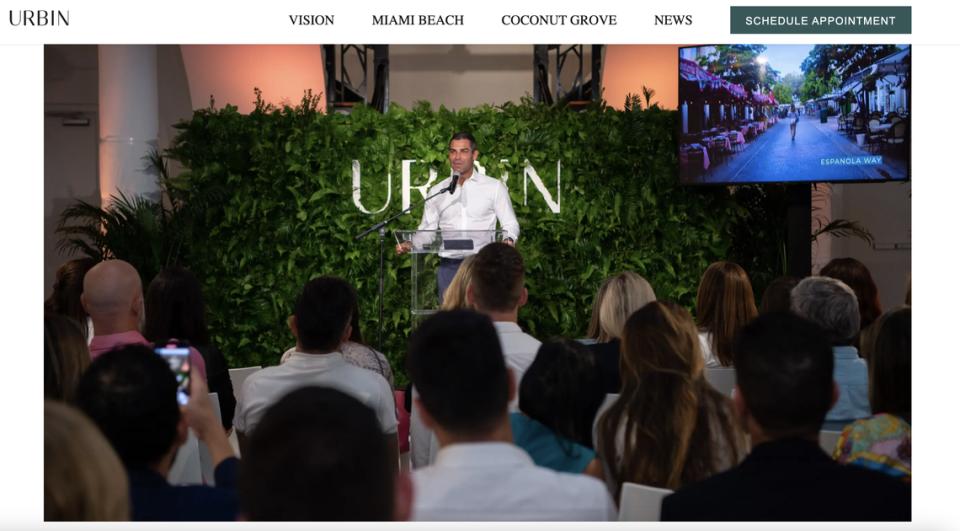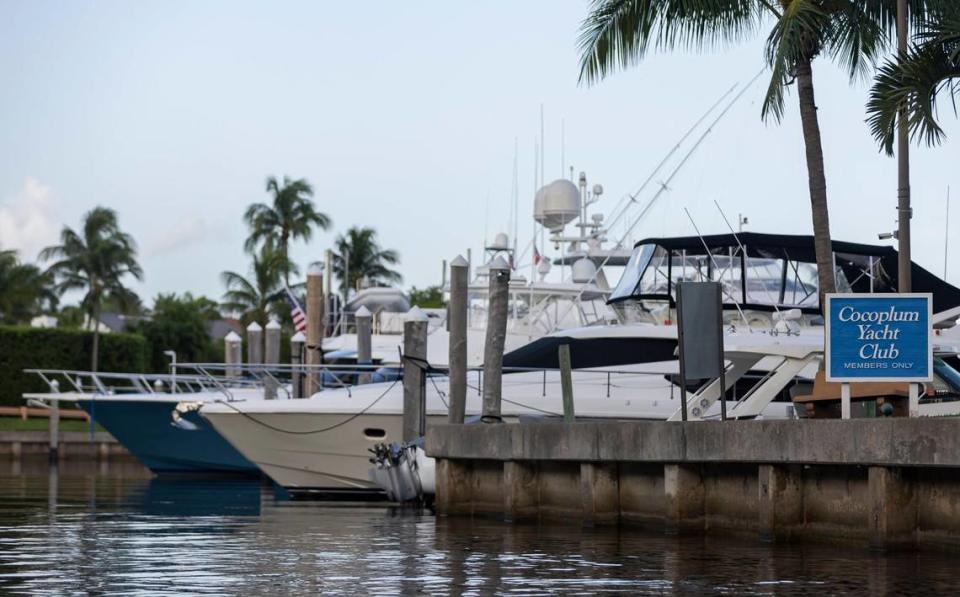When the Securities and Exchange Commission sued developer Rishi Kapoor in December, accusing him of defrauding investors in his real estate projects, the SEC’s lawsuit made no mention of his company’s consulting agreement with Miami Mayor Francis Suarez.
But that didn’t leave Suarez, who was not named as a defendant, entirely unscathed.
In April, Suarez was compelled under subpoena to give a sworn statement related to the Kapoor case, according to three people familiar with the matter. Although his statement under oath is not a public record, those familiar with Suarez’s testimony say he was questioned by SEC lawyers about his consulting contract with Kapoor to find investors for the developer’s real estate projects.
The mayor has refused to make public a copy of the contract since questions about his work for the developer became public last year, and instead said that there was no conflict of interest. The Miami Herald has previously reported that the mayor received a $10,000 monthly retainer but has now learned that he was also promised commissions if he helped woo investors, find real estate and secure financing for Kapoor’s projects in Miami and elsewhere.
Also notable: The agreement promised Suarez an equity stake in Kapoor’s company if he worked as a consultant for a certain period of time, though ultimately he did not receive it, according to people familiar with the contract and the developer’s business.
The date on the contract, which was executed in July 2021, when Suarez received his first $10,000 payment, appears to undermine the mayor’s long-standing claim that he has never mixed his public work with his private employment. A meeting between Suarez and Kapoor that was organized through official city channels and listed on Suarez’s mayoral calendar took place in late August 2021 on Kapoor’s yacht. By that point, the mayor had already received $20,000 from URBIN LLC, one of Kapoor’s former development companies, sources said.
Although the exact nature of Suarez’s statement to the SEC is unknown, the agency’s probe generally focuses on the mayor’s contract with the developer, the nature of his work and his compensation beyond the retainer. But the details of Suarez’s contract, and in particular its start date, are more broadly relevant as Miami-Dade County ethics officials, state prosecutors and federal authorities, including the FBI, investigate whether the mayor misused his public office for private gain.
Kapoor hired Suarez in July 2021 after more than a year of working the mayor’s channels at City Hall to push through legislation beneficial to one of the developer’s planned projects in Coconut Grove. The next month, the two met at the Cocoplum Yacht Club and went out on Kapoor’s yacht, according to public records and sources familiar with the meeting.

Kapoor said through his attorney that he did not discuss business with Suarez at the August rendezvous. But the timing of the meeting, in which Suarez spent two hours with Kapoor in what appears to be his mayoral capacity at a time he was also on the developer’s payroll, underscores a possible breach of the firewall Suarez is supposed to maintain between his public office and private employer, according to county ethics laws.
Suarez and his defense attorney, Armando Rosquete, did not respond to requests for comment on his statement to the SEC, the contract or the mayor’s yacht meeting with Kapoor.
URBIN ended up paying Suarez more than $200,000 over two years — a greater amount than the Herald originally reported — according to corporate records and sources familiar with the payments. The payments continued through at least March 2023, a couple of months before Suarez’s involvement in the company was revealed in a lawsuit.
Suarez’s contract included financial incentives promising commissions based on a small percentage of any investment he secured for the company’s “work-live” development projects, sources said. In effect, the mayor could be compensated beyond his monthly retainer fee if he found an investor and made introductions with Kapoor.
As it turned out, according to numerous people familiar with his consulting work for URBIN, Suarez never delivered any new investors between 2021 and 2023 and didn’t receive any compensation beyond the monthly fee.
Similar incentives were also written into Suarez’s contract with URBIN if he helped facilitate a land or loan deal for the company. That never happened, either, according to sources familiar with the contract.


SEC lawyers are pursuing allegations that Kapoor misled investors in his condo and retail projects developed by URBIN and its parent company, Location Ventures.
The SEC’s civil suit accuses Kapoor of “fraudulent” activities while raising about $93 million from more than 50 investors in his companies’ projects in Miami, Miami Beach, Coral Gables and Fort Lauderdale between January 2018 and March 2023.
Kapoor’s defense attorney, Fred Schwartz, said his client “defrauded no one and that the SEC has been misled by disgruntled former employees and a few greedy investors.”
SEC lawyers are also delving into whether Kapoor and Suarez acted as unregistered investment brokers under SEC laws by offering securities in the form of equity in real estate deals.
South Florida lawyer David Chase, a former SEC enforcement attorney who has defended individuals in SEC investigations for over 25 years, is not involved in the Kapoor case and has no views on the allegations against him.
Chase said the SEC would have likely questioned Suarez about whether he acted as an unregistered broker in violation of federal securities laws if his contract’s terms with Kapoor’s company provided him incentives for introducing investors.
“To act as an unregistered broker, you have to, among other activities, receive transaction-based compensation (typically a commission), actively market the project to investors, and provide advice as to the merits of the investment,” Chase said in email to the Herald.
If Suarez simply made investor introductions and was compensated accordingly, without engaging in typical “broker” activity, Chase said he believes the SEC would not have a viable case.
“This is particularly so if the mayor never made an investor introduction,” Chase said.
No clear line
Suarez, a part-time mayor with more than a dozen outside jobs in the private sector, has always maintained that he never mixes his government work with his private employment.
He remained steadfast when a lawsuit revealed last year that he had been hired as a $10,000-a-month consultant for “unknown services” by Kapoor, whose condominium project in Coconut Grove needed the city’s approval.
After the news broke, the mayor’s then-spokesperson, Soledad Cedro, told reporters “no issues connected to Location Ventures or [URBIN] have come before the Mayor in his official capacity.”
When internal documents from the developer’s company indicated that Kapoor had used connections in the mayor’s office to help overcome zoning hurdles, Suarez denied any involvement.
Suarez told reporters who approached him last May outside his office at City Hall that he had never had any meetings with Kapoor – although presumably he meant that he had never met with his private employer in his official capacity as mayor.
Public records later revealed that he and Kapoor met regularly in 2020 and 2021 as they worked with city staff and commissioners to draft an amendment to the city code dealing with the kind of microunits and co-living developments Kapoor was hoping to develop in Miami.


Suarez never responded to the Herald’s questions about those meetings, which appeared to contradict his previous statements. But the developer’s first attorney, Brian Goodkind, told the Herald last year that the legislative push was over long before Suarez was on the company payroll.
Now, the previously unknown contract details give new significance to the twilight meeting at the Cocoplum Yacht Club, demonstrating how Suarez’s dual roles as public servant and paid consultant became intertwined.
One month after Kapoor put Suarez on his payroll, the mayor met with the developer on Kapoor’s yacht on Aug. 23, 2021, a meeting organized through Suarez’s mayoral office and listed on his official city calendar.
Time spent on private meetings and personal matters is generally listed on the mayor’s calendar as “FXS block,” without any elaboration. But the details on the calendar indicate that Suarez was meeting with Kapoor that night in his capacity as mayor — at a time when he was already receiving regular income from one of the developer’s companies.
Suarez’s executive assistant sent out an email invite to the mayor, four of his sergeants-at-arms and Kapoor for the meeting that August evening, and they all confirmed, according to emails obtained through a public records request.


It remains unknown what the two men discussed on Kapoor’s 55-foot Viking Princess powerboat. Kapoor’s defense attorney, Schwartz, declined to elaborate on his client’s yacht outing with the mayor but said “no business was discussed that day.“
In a statement to the Herald, Anthony Alfieri, an ethics expert at the University of Miami School of Law, condemned what he described as Suarez’s “web of self-serving financial relationships with benefit-seeking private interests doing business within the City of Miami, in this case Rishi Kapoor and his company, URBIN.”
Alfieri said those extracurricular relationships show how the mayor has failed to “respect the bright-line boundaries” in the county Ethics Code prohibiting financial conflicts of interest for public officials.
Suarez adamantly denied that any of his outside jobs with Kapoor’s company and other employers resulted in conflicts of interest in an Oct. 6 statement to the Herald, saying: “I have balanced my work on behalf of the community and my private obligations to the best of my ability in compliance with the rules set forth for elected officials.”
On a local TV news show last year, the mayor said there was a conflict provision in the contract with Kapoor’s company that Suarez said “prevented [the developer] from asking for anything related to the city.”
Kapoor’s former company, Location Ventures, provided a different interpretation of the contract, however.
“The agreement specifically makes mention that Mayor Suarez may recuse himself or resign from his advisory role should there be any conflicts of interest,” the company said in a statement nearly a year ago.
The Herald has learned that the company’s statement more accurately reflects the contract’s language.
Following the revelations about his private work for the Miami developer, the Herald wrote a series of stories about Suarez’s private jobs, which have made him a multimillionaire since he became mayor.
When Local 10’s Glenna Milberg asked Suarez in January whether he thought any of those employers would have hired him were he not the mayor, Suarez walked out of the interview.
“I’m done,” he said.
Source Agencies

